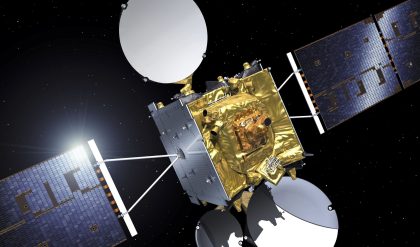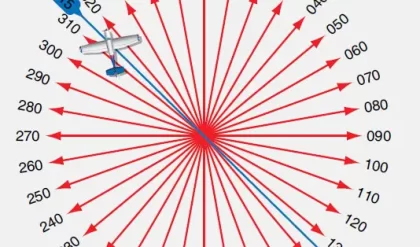The electron gun section of the cathode ray tube provides a sharply focused electron beam directed towards the fluorescent-coated screen. This section starts from thermally heated cathode, emitting the electrons. The control grid is given negative potential with respect to cathode. This grid controls the number of electrons in the beam, going to the screen.
The momentum of the electrons (their number * their speed) determines the intensity, or brightness, of the light emitted from the fluorescent screen due to the electron bombardment. The light emitted is usually of the green color. Because the electrons are negatively charged, a repulsive force is created by applying a negative voltage to the control grid (in CRT, voltages applied to various grids are stated with respect to cathode, which is taken as common point). This negative control voltage can be made variable.

Note: a more negative voltage results in less number of electrons in the beam and hence decreased brightness of the beam spot.
Since the electron beam consists of many electrons, beam tends to diverge. This is because the similar (negative) charges on the electron repel each other. To compensate for such repulsion forces, an adjustable electrostatic field is created between two cylindrical anodes called the focusing anodes.
Note: the variable positive voltage on the second anode is used to adjust the focus or sharpness of the bright beam spot.
The high positive potential is also given to the preaccelerating anodes and accelerating anodes, which results into the required acceleration of the electrons.
Both focusing and accelerating anodes are cylindrical in shape having small openings located in the center of each electrode, co-axial with the tube axis. The preaccelerating and accelerating anodes are connected to a common positive high voltage which varies between 2 kV to 10 kV. The focusing anode is connected to a lower positive voltage of about 400V to 500V.




